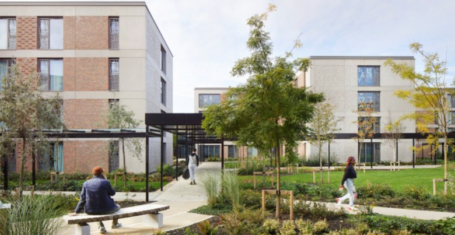
We can go back to uni on May 17th, but the government is still ignoring students’ needs
Despite lockdown now coming to an end, it’s effects on students’ mental health’s remain
The government’s announcement that students can return to university no earlier than May 17th is the final nail in the coffin as to how the government have completely let down, blamed and offered no support to students during the pandemic. Why would universities ask students to come back to campus when the semester is about to end?
Throughout this difficult year, the government has completely neglected the student population. From subtle messages of blame, to the advert “Can you look them in the eyes?” and now this announcement: students have been left completely unsupported, with heavy burdens to bear.
I cannot get this advert out of my head. A year has passed since the pandemic started, and I still feel the weight on my shoulders. I feel that people’s lives are my personal responsibility and this advertisement continues to haunt me. Can you, a student facing difficulties living in this pandemic, look them in the eyes without feeling the weight of the world upon your shoulders?
My friend, who is student at the University of Manchester, has faced many arguments with her housemates about how to live during lockdown. She tested positive for Covid-19 and says: “I stayed in my room, wearing a mask to go to the kitchen. My housemate didn’t try to comfort me, she just locked herself in her room.”
My friend faced two weeks of isolation alone in her room, a traumatic time due to the loneliness, guilt and shame she felt from having Covid on top of the stress of university work.
The idea that we students are responsible for being ill and causing the illness of others is a derivative of the pandemic and its mismanagement by the government. Campaigns like these are actively shifting responsibility onto students, even though the mismanagement of the situation is not our responsibility. Whilst guidelines are effective, where is the mental health support?
Mind UK’s coronavirus survey found 73 per cent of students said their mental health declined during lockdown. They list the way the pandemic may have impacted students in how worried we may be about the virus and how overwhelmed or stress we may be with work, finances and the uncertainty of future job prospects. Yet the government has repeatedly ignored students and instead carries out a discourse of blame for the spread of the virus.
My friend said: “I thought I had morals and values, but my flatmate blaming me made me question myself.”
Students have had to live in houses with multiple other people during the pandemic, which makes us even more responsible for each other’s actions. Even the smallest choice like going to the shops can massively impact those we live with and the environment we have had to spend the majority of our time within.
Not enough attention is given to how much this heavy burden is impacting our daily life. Most of us are young and the blame and responsibility we are being asked to carry on our shoulders is too much and feels overwhelming. With guilt and responsibility comes support, but that support has been dramatically overlooked, and we will have to live with the consequences.
Mental health support in the shape of self-help guides are not sufficient to support 40,485 students during a pandemic. When facing mental health difficulties, the most difficult thing to do is to seek help, so why is it made so inaccessible?
As students may only return after the 17th May, it again shows how far the government have not listened to students and what we truly need. They have not supported us but instead scapegoated and blamed us. So in response to their question, “can we look them in the eyes?”, I would say no. No one should even be asked that question, and students who have been continuously accused and blamed while their mental health overlooked should not be given this responsibility.
In response, I ask: “Can you, the university and the government look us, students, in the eyes and tell us you are doing everything you can to support us?”
Anyone can contact Samaritans FREE any time from any phone on 116 123, even a mobile without credit. This number won’t show up on your phone bill. Or you can email [email protected] or visit www.samaritans.org to find details of your nearest branch, where you can talk to one of our trained volunteers face to face.
Related stories recommended by this writer
• Student mental health is being neglected, right when we need help the most
• Manchester Uni deletes Insta post telling students to see lockdown ‘as a retreat’









































